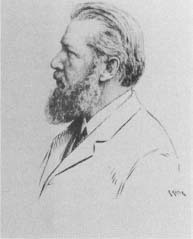Jenner, Edward
Edward Jenner (1749-1823) was a pioneer in the study of viruses and immunization against diseases. His work has been built upon by many successors who have discovered new vaccinations to reduce suffering and death, particularly for children.

Jenner was born in Berkeley, England, the youngest of six children born to Stephen Jenner, a clergyman of the Church of England. Jenner's father died when he was only five years old, and he was raised by his older brother, who was also a clergyman.
In agreement with the practice at the time, eight-year-old Jenner was forced to fast (not eat for long periods), had blood drawn from him in a practice called "bleeding," and was injected with smallpox (in the hope that the injection would prevent the disease).
When Jenner was thirteen years old, he was apprenticed (became an assistant in training) to a surgeon. Then in 1770, he moved to London, England, to work with John Hunter (1728-1798), a famous Scottish anatomist and surgeon who encouraged Jenner to be curious and experimental in his approach to medicine. Jenner returned to Berkeley in 1773, and set up practice as a country doctor. His curiosity led him to conduct his own research to help his rural patients.
Smallpox
Up until Jenner's time, smallpox was a common and often fatal disease worldwide. It caused high fevers and ugly pockmark scars, like those of chicken pox, only these scars could disfigure a person for life.
Many centuries before Jenner's time, the Chinese had begun the practice of blowing flakes from smallpox scabs up the nostrils of healthy persons to produce immunity to the disease. By the seventeenth century, the Turks and Greeks had discovered that, when injected into the skin of healthy individuals, the serum from the smallpox blister produced a mild case of the disease and subsequent immunity.
The practice of inoculation reached England by the eighteenth century. It was quite risky, since those who were inoculated frequently suffered a severe or fatal case of smallpox. Despite the risk, people willingly agreed to inoculation because of the widespread incidence of smallpox and the fear of suffering terrible disfigurement.
Jenner's Experiments
As a young physician, Jenner noticed that dairy workers who had been exposed to cowpox, a disease like mild smallpox, seemed immune to the more severe infection. Jenner continually put forth his theory that cowpox could be used to prevent smallpox, but his fellow physicians shunned his ideas. They maintained that they had seen smallpox victims who claimed to have had earlier cases of cowpox, so that cowpox must not give immunity. It became Jenner's task to transform a country superstition into an accepted medical practice.
After many years of observing cases of cowpox, Jenner took a step that could have branded him a criminal as easily as a hero. On May 14, 1796, he removed the fluid of a cowpox blister from dairymaid Sarah Nelmes, and inoculated James Phipps, an eight-year-old boy who soon came down with cowpox. Six weeks later, he inoculated the boy with smallpox. The boy remained healthy, and Jenner had proved his theory. Jenner called his method "vaccination," using the Latin word "vaccinia," meaning "cowpox."
The publication of Jenner's An Inquiry into the Causes and Effects of the Variolae Vaccinae set off an enthusiastic demand for vaccination throughout Europe. Within 18 months, the number of deaths from smallpox had dropped by two-thirds in England. By 1800, 100,000 people had been vaccinated worldwide. As the demand for the vaccine rapidly increased, Jenner discovered that he could take lymph from a smallpox pustule and dry it in a glass tube for use up to three months later. The vaccine could then be transported.
Jenner became famous throughout Europe and the United States. Across the Atlantic Ocean, Thomas Jefferson received the vaccine from Jenner and proceeded to vaccinate his family and neighbors at Monticello. In his native England, however, Jenner's medical colleagues refused to allow him entry into the College of Physicians in London, insisting that he first pass a test on the theories of the ancient Greek physicians, Hippocrates (460-377 B.C ) and Galen ( A.D. 130-200). Jenner refused to bow to their demands, saying his accomplishments in conquering smallpox should have qualified him for election. He was never elected to the college.
Jenner continued to live in his country home and practice medicine in the years after his discovery. He also pursued his interest in birds and wrote papers on their behavior until his death in 1823. His work had far-reaching effects, inspiring Louis Pasteur (1822-1895) in his research on the causes of disease, thus leading to vaccines for other serious illnesses. And today, thanks to Jenner's curiosity and perseverence, smallpox has been largely eradicated (erased).
-details about the experiment (what they did and what they were trying to find out)
-the results or observations of the experiment
-the conclusion from the experiment
-the scienific contribution made from the experiment to society
-an detailed evaulation of the impact of the findings of this experiment on society
would much be appreicated if you could help me out here!! :)